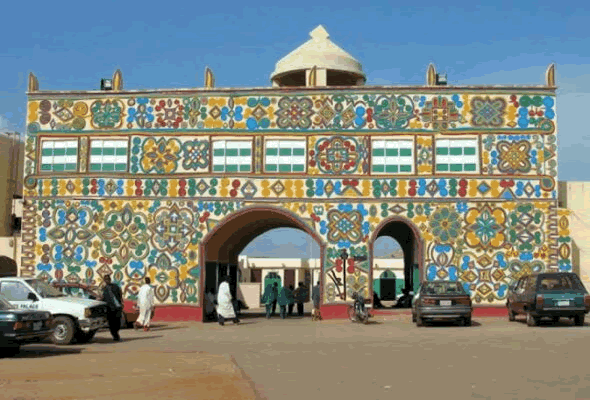In a dramatic turn of events, the Federal High Court and the Kano State High Court have issued conflicting interim injunctions concerning the Kano Emirate, escalating tensions and uncertainty in the state. The Federal High Court in Kano, presided over by Justice S. A. Amobeda, ordered the eviction of Emir Muhammadu Sanusi II from the Kofar Kudu Palace, thereby reinforcing the authority of the 15th Emir of Kano, Aminu Ado Bayero.
“An order of interim injunction restraining the respondents from inviting, arresting, detaining, threatening, intimidating, harassing the Applicant, or infringing on his rights is hereby granted,” stated Justice Amobeda. He further noted, “This order ensures that Emir Aminu Bayero enjoys all rights and privileges accrued to him by virtue of his position.”
Conversely, the Kano State High Court, under the jurisdiction of Hon. Justice Amina Adamu Aliyu, issued an injunction to protect Muhammadu Sanusi II and other key figures from potential harassment by state authorities. This order prevents any interference with the Emir’s autonomy and the seizure of key symbols of his authority, such as the twin spear, the Royal Hat of Dabo, and the Ostrich-feathered shoes. Justice Aliyu emphasized, “An order of interim injunction is granted restraining the respondents from harassing or intimidating the applicants or confiscating any symbols of the Emir’s authority.” She further added, “The respondents are ordered to maintain the status quo pending the hearing and determination of the motion on notice.”
These conflicting orders have led to significant confusion regarding the rightful authority and protection of the emirs in Kano. The State High Court’s case is set for further hearing on June 13, while the Federal High Court has adjourned its case to June 4.
NewsAnalytrics Analysis on Impact on Traditional Institutions and the Nigerian Legal System
The conflicting court orders regarding the Kano Emirate highlight significant issues within Nigeria’s traditional institutions and the legal system. This situation underscores the complexities and tensions that arise when modern governance intersects with historical and cultural legacies.
Impact on Traditional Institutions
1. Undermining Authority and Stability: The conflicting injunctions from the Federal High Court and the Kano State High Court create a scenario where the authority of traditional leaders is questioned and undermined. The lack of a clear and unified legal stance can destabilize the emirate, leading to potential power struggles and uncertainty within the traditional institution.
2. Erosion of Cultural Heritage: The legal tussle threatens the preservation of cultural heritage and the roles of traditional leaders who have historically played significant roles in community cohesion and cultural preservation. The integrity of symbols such as the twin spear, the Royal Hat of Dabo, and the Ostrich-feathered shoes is jeopardized when their ownership and legitimacy are disputed in court.
3. Public Perception and Trust: The public’s trust in the traditional institutions may be eroded if the legal battles are perceived as purely political maneuvers rather than genuine disputes about governance and leadership. This could lead to a diminished role for traditional leaders in local governance and community affairs.
Impact on the Nigerian Legal System
1. Judicial Conflict and Confusion: The issuance of conflicting orders by different courts highlights a lack of coordination and potential conflicts within the judiciary. This can lead to confusion among the public and the legal community, undermining confidence in the legal system’s ability to provide clear and consistent rulings.
2. Questions of Jurisdiction: The case raises important questions about jurisdiction and the appropriate venue for resolving disputes involving traditional institutions. The overlap between federal and state jurisdictions in such matters needs clearer delineation to prevent future conflicts.
3. Legal Precedents and Future Disputes: The outcome of this legal conflict could set significant precedents for how similar disputes are handled in the future. The judiciary must carefully consider the implications of their decisions on both traditional institutions and the broader legal framework governing them.
4. Role of the Judiciary in Governance: The judiciary’s involvement in traditional institution matters emphasizes its role in balancing modern legal principles with respect for historical and cultural practices. This balance is delicate and requires a nuanced understanding of both the law and the cultural context.
Conclusion
The ongoing legal dispute over the Kano Emirate’s leadership is a microcosm of the broader challenges faced by Nigeria’s traditional institutions and legal system. It underscores the need for clearer legal frameworks that respect both modern governance structures and historical legacies. The resolution of this conflict will not only affect the leadership in Kano but also influence how traditional institutions are integrated into Nigeria’s contemporary legal and administrative systems. As the courts deliberate, the implications for cultural preservation, legal clarity, and public trust remain significant and far-reaching.


